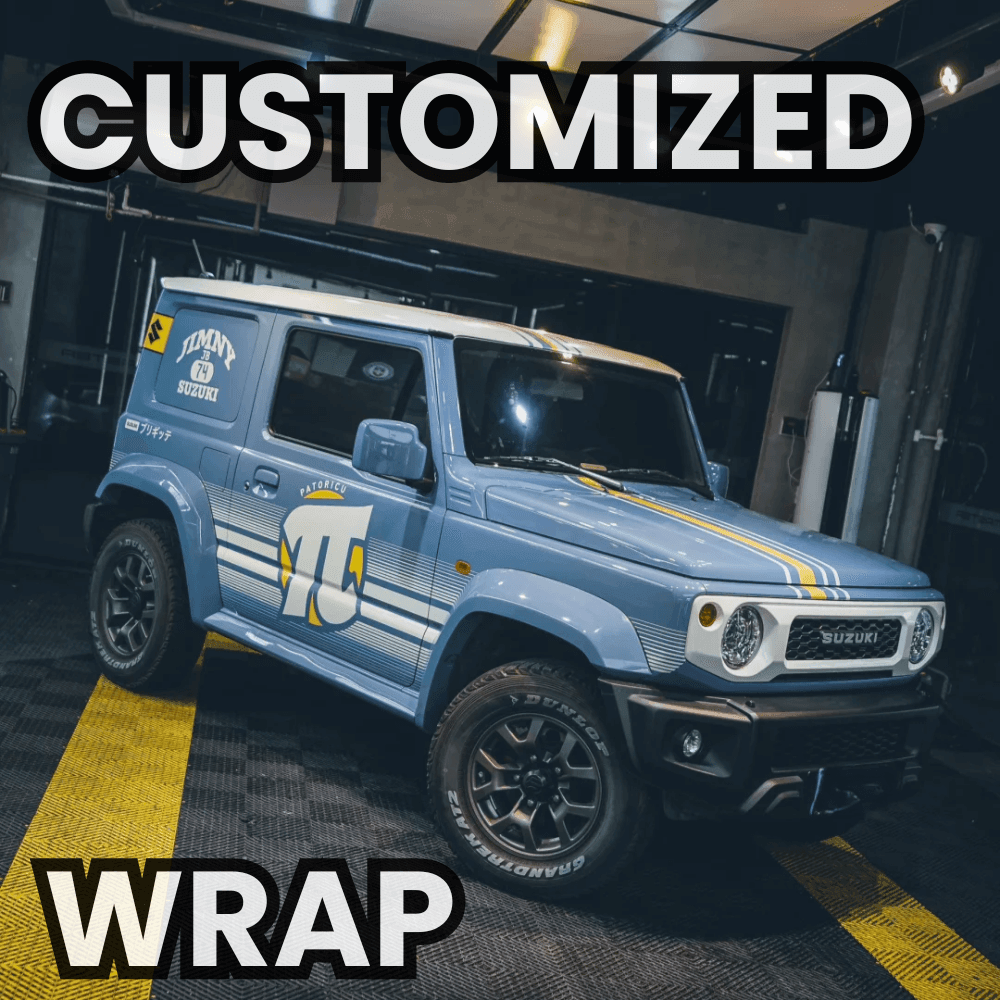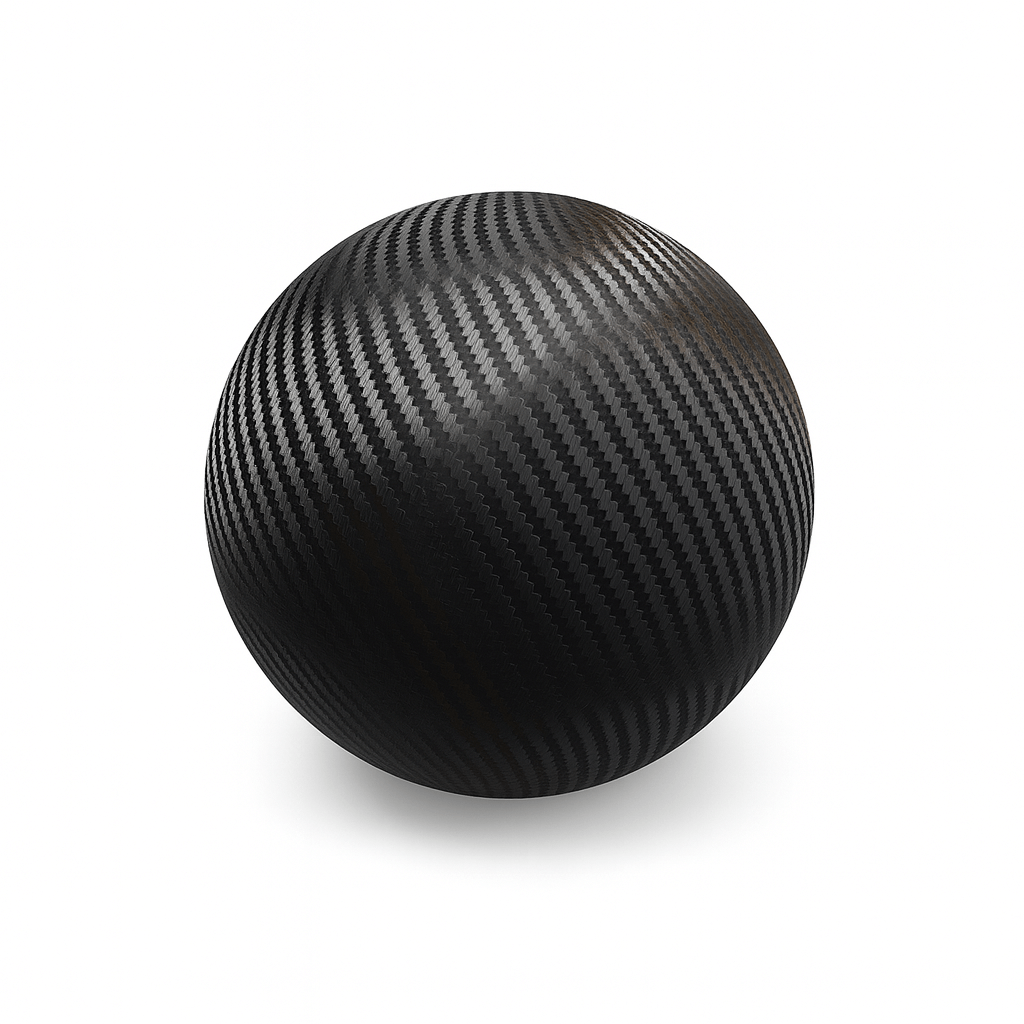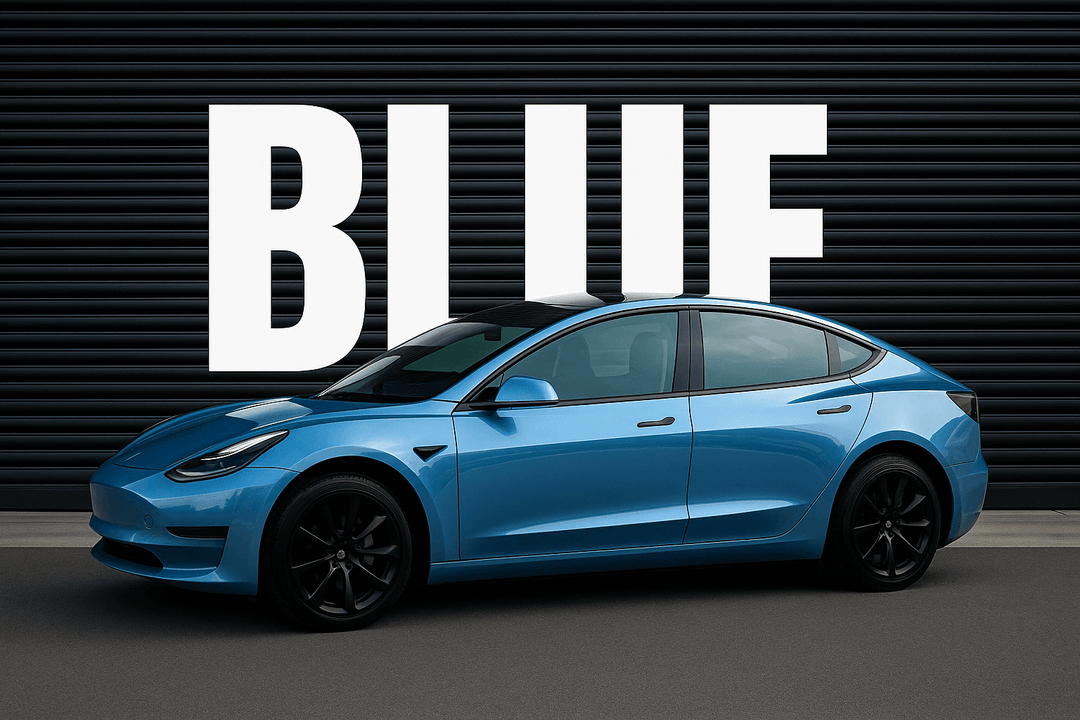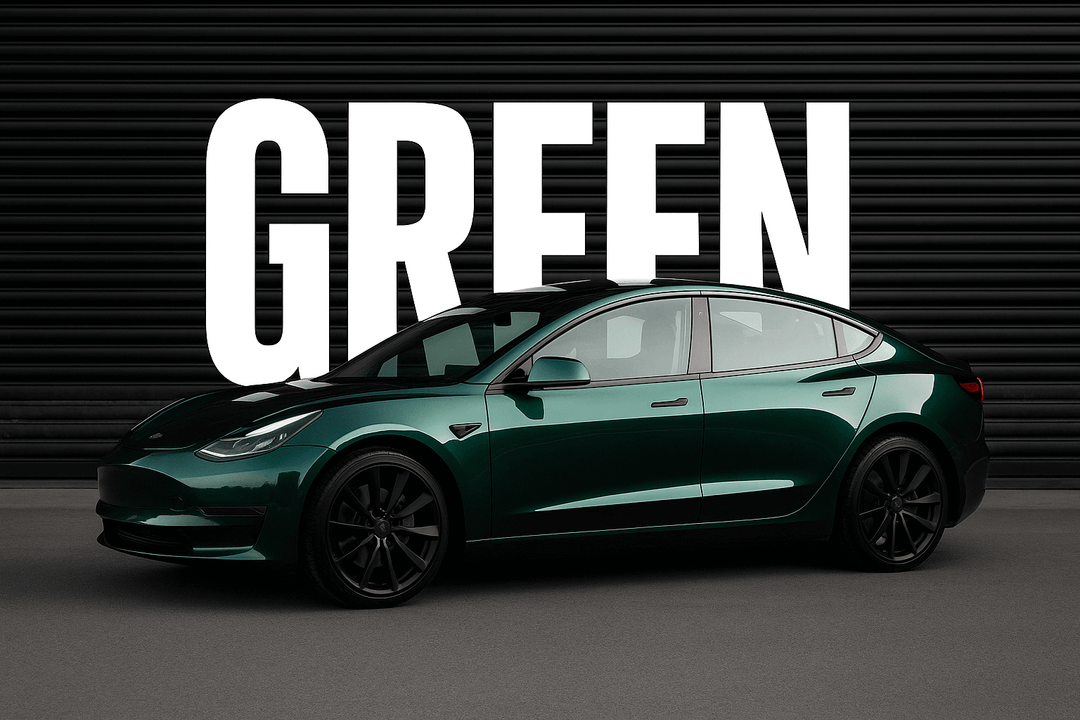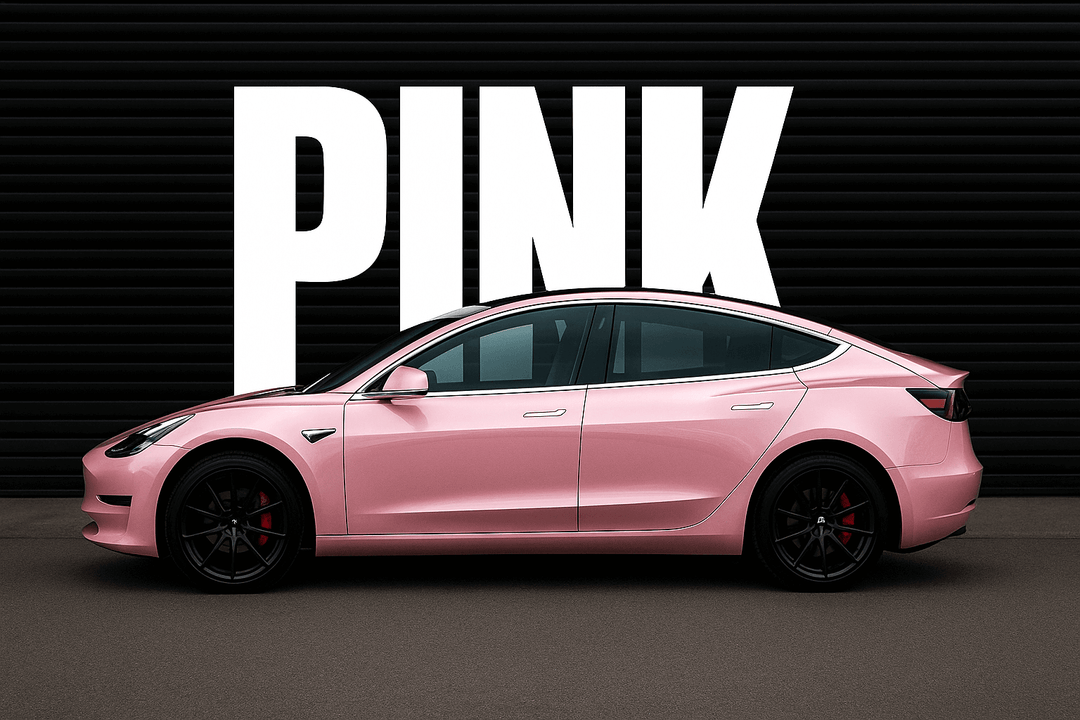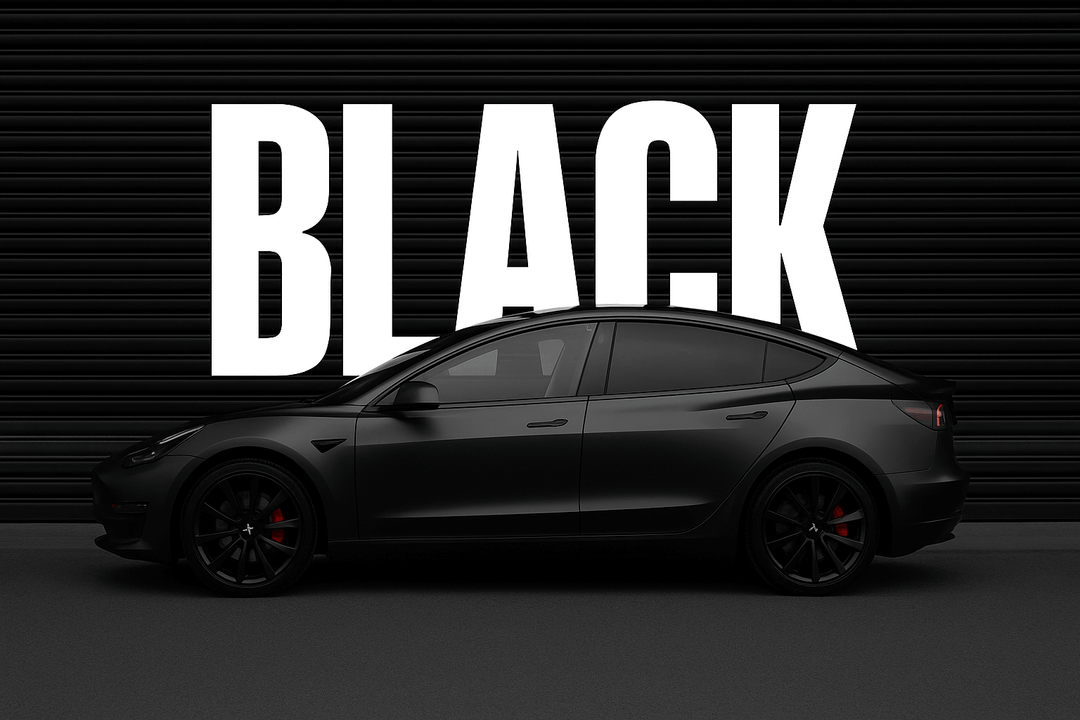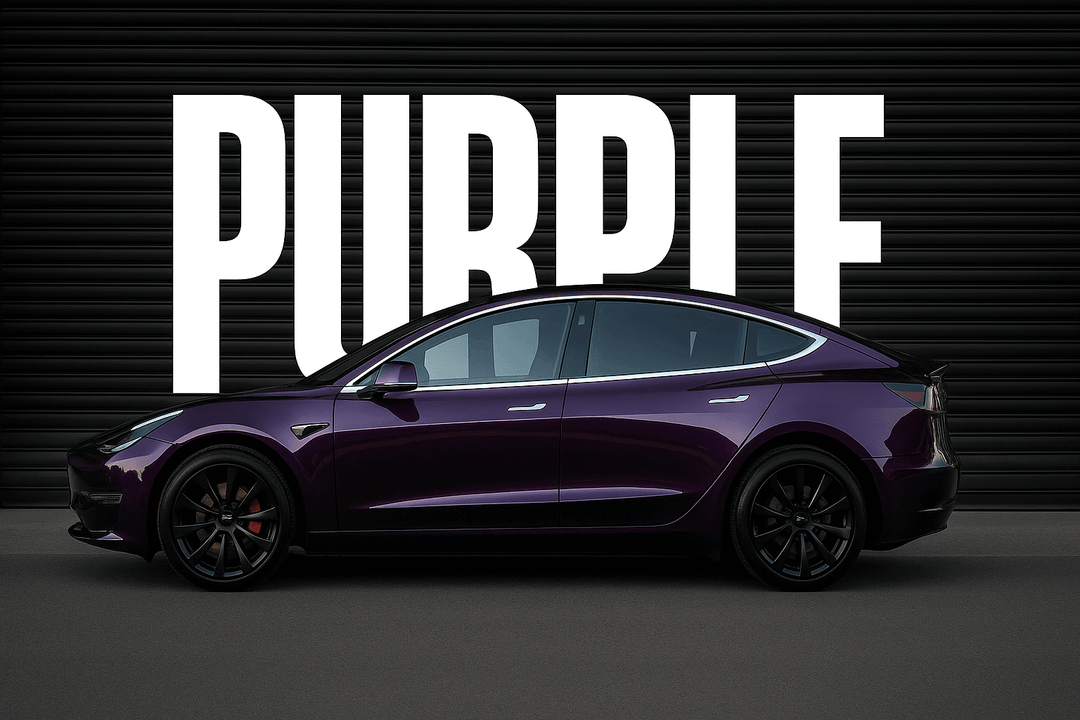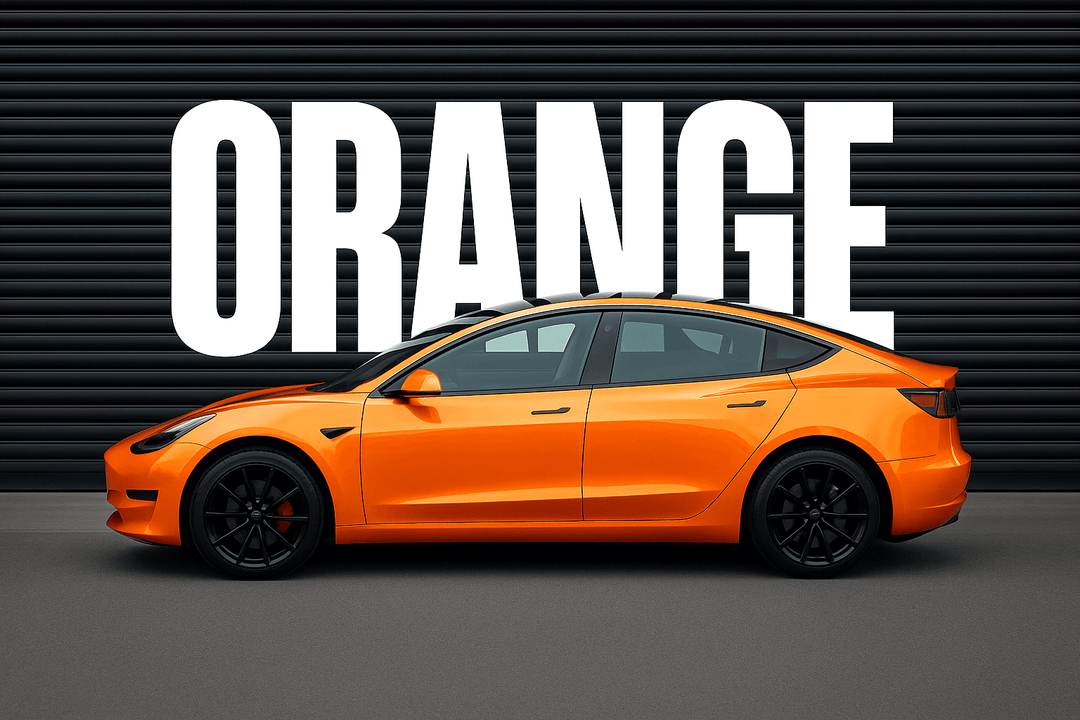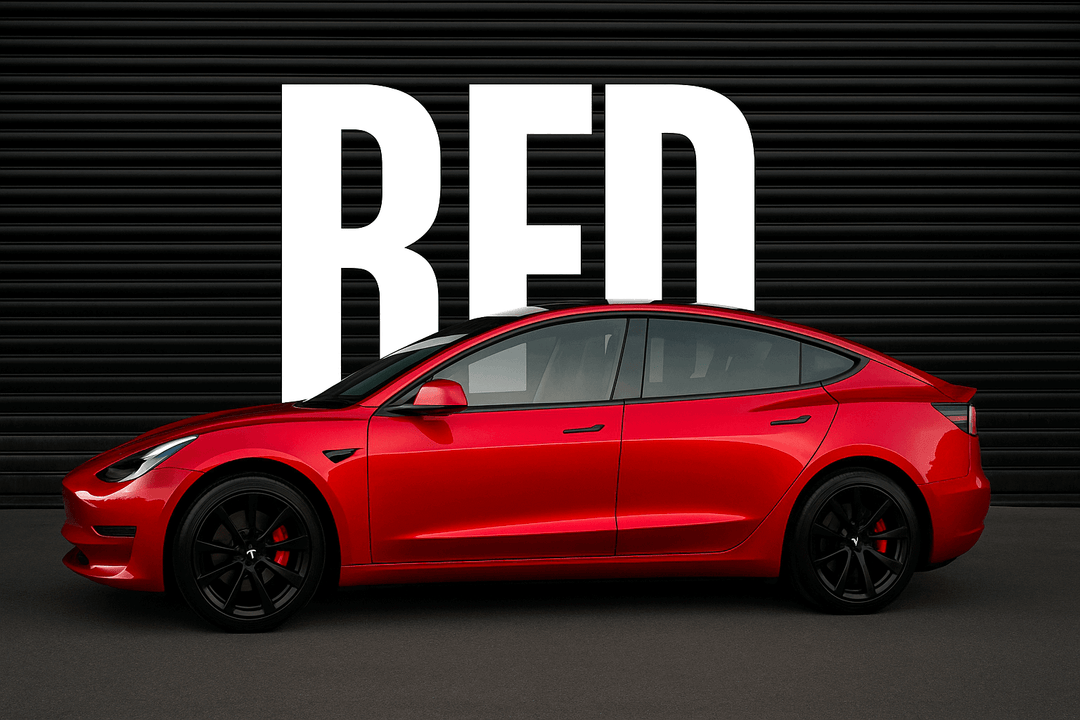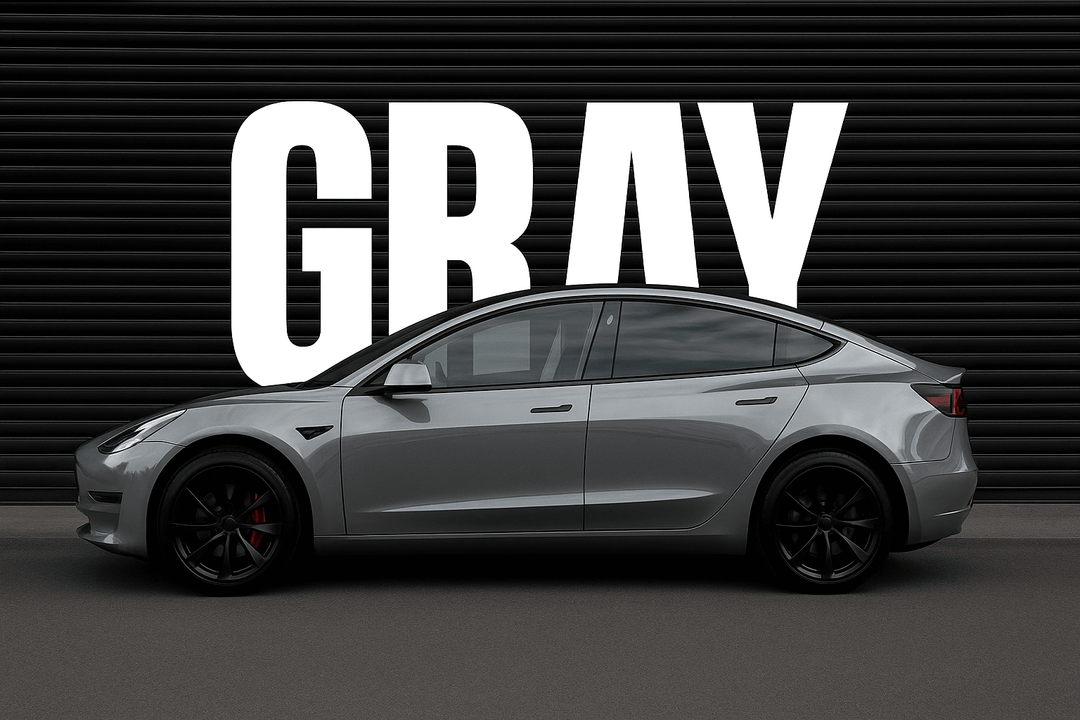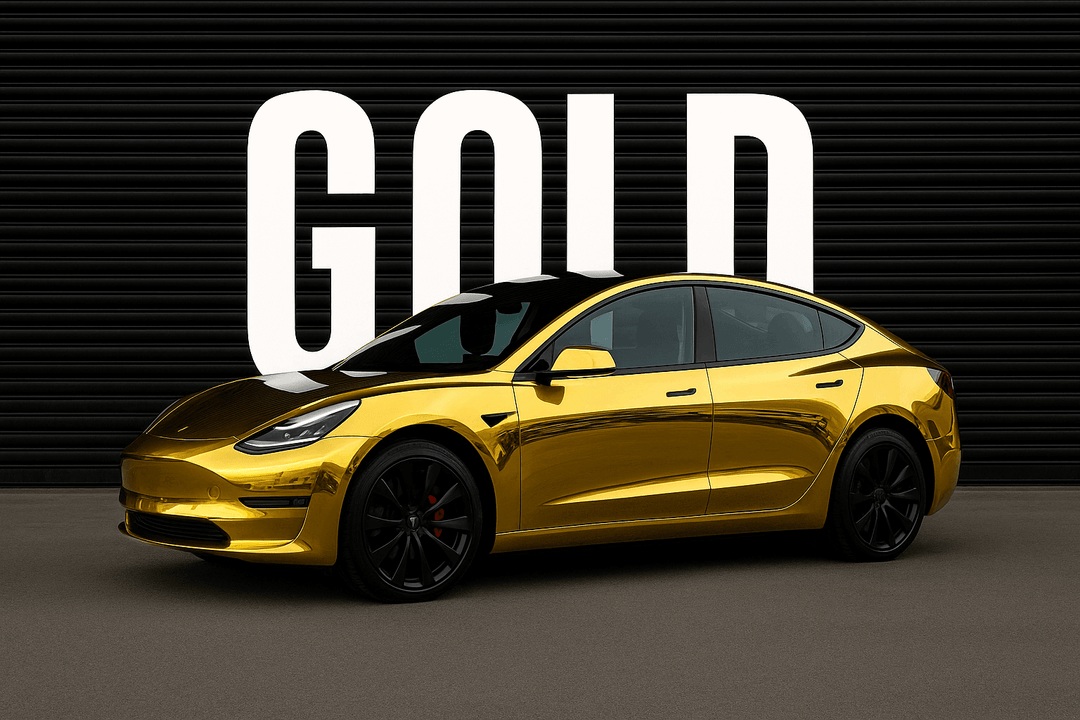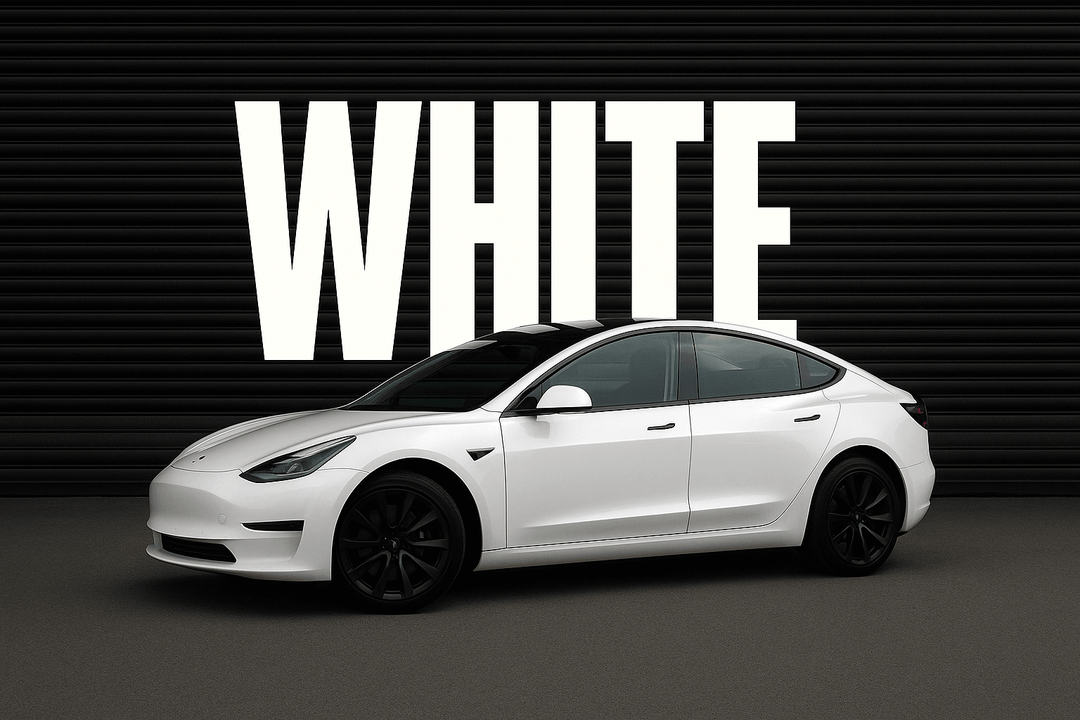Commercial Vehicle Wrap Cost
If you're looking for a high-impact way to promote your business while on the move, wrapping your commercial vehicle is one of the smartest investments you can make. A professionally wrapped van, truck, or fleet vehicle doesn’t just look sharp—it acts as a mobile billboard that advertises your brand 24/7 wherever it goes. But before you dive in, you’re probably wondering: how much does a commercial vehicle wrap cost?
The truth is, there's no one-size-fits-all answer. The total cost depends on several factors, including the type of vehicle, how much of it you plan to wrap, the quality of materials used, the complexity of the design, and whether you go for a DIY kit or professional installation.

In this guide, we’ll break down the typical costs for different vehicle types and wrap styles, explain what drives those prices, and offer tips to help you get the best return on your investment. Whether you're branding a single delivery van or wrapping an entire fleet of service vehicles, understanding the pricing landscape will help you plan your project with clarity and confidence.
Ready to find out what goes into commercial vehicle wrap pricing? Let’s get started.
What Is a Commercial Vehicle Wrap?
A commercial vehicle wrap is a large, printed vinyl graphic applied directly to the surface of a business vehicle. Designed to transform cars, vans, trucks, trailers, and other work vehicles into powerful mobile advertisements, these wraps display branding elements like company logos, contact information, services, and eye-catching designs that attract attention on the road.
Yeswrap’s commercial wraps are made from durable, weather-resistant vinyl that not only promotes your brand but also provides a layer of protection for the vehicle’s original paint against UV rays, light scratches, and everyday wear.
Common Types of Commercial Vehicles Wrapped
Businesses across all industries use vehicle wraps to enhance their presence and communicate professionalism. Some of the most commonly wrapped commercial vehicles include:
-
Work Vans – Ideal for electricians, plumbers, HVAC services, and mobile technicians. These offer plenty of flat surface space for branding.
-
Pickup Trucks – Used by contractors, landscapers, and small businesses. A wrapped truck bed, tailgate, or cab adds high visibility.
-
Box Trucks – With large side panels, box trucks are perfect for bold designs and advertising messages that are visible from a distance.
-
Fleet Cars – Companies with multiple vehicles benefit from consistent branding across sedans or hatchbacks used for service or delivery.
-
Trailers – Utility trailers and enclosed trailers can be wrapped to match the tow vehicle or serve as standalone rolling billboards.
-
Food Trucks – Custom wraps make food trucks instantly recognizable and inviting, with creative menus, graphics, and branding.
Types of Wrap Coverage
There are several wrap options to suit different budgets and branding goals:
-
Full Wraps
Cover almost every visible painted surface—sides, rear, hood, roof, bumpers, and even mirrors. Full wraps deliver maximum brand exposure and allow for complex, immersive designs. -
Partial Wraps
Target specific sections of the vehicle, such as side panels, rear doors, or the hood. They offer a balance between cost and impact, and can still deliver strong branding with the right layout and color integration. -
Spot Graphics & Cut Vinyl Decals
These are individual graphics, logos, or lettering made from solid-color or printed vinyl. They’re applied to select areas and are ideal for simple branding like company names, phone numbers, or website URLs. Spot graphics are the most affordable option but offer less visual reach.
Average Commercial Vehicle Wrap Cost in 2025
Commercial vehicle wrap costs in 2025 typically land between $2,500 and $7,000+, and partial wraps cost significantly less. Your final price will depend on your vehicle’s size, your coverage choice, the complexity of your design, and your location. Below is a detailed breakdown of typical pricing for partial and full wraps.
|
Vehicle Type |
Partial Wrap |
Full Wrap |
|
Work Van (e.g., Ford Transit) |
$750 – $1,800 |
$2,500 – $4,500 |
|
Pickup Truck |
$600 – $1,500 |
$2,000 – $3,800 |
|
Box Truck (14–26 ft) |
$1,200 – $2,500 |
$3,500 – $6,500+ |
|
Small Car (Fleet Sedan) |
$500 – $1,200 |
$1,800 – $3,200 |
|
Food Truck |
$1,500 – $3,000 |
$4,000 – $7,000+ |
Factors That Affect Commercial Vehicle Wrap Cost
The Commercial vehicle wrap costs fall within the ranges outlined above. Still, the final price will depend on your vehicle’s size, your coverage choice, the complexity of your design, and your location.
1. Vehicle Size and Surface Area
Larger vehicles have more surface area that needs to be covered, which means they require more vinyl material, more labor for installation, and potentially more complex design planning to ensure the graphics align properly across panels.
For example, wrapping a compact fleet sedan will naturally cost much less than wrapping a box truck or food truck, simply due to the difference in square footage. The time it takes to prep, install, and post-finish a wrap increases proportionally with the vehicle’s size. In addition, taller vehicles or those with roof wraps often require lifts or scaffolding, which adds to labor costs.
Curved surfaces, recessed panels, sliding doors, and handles can all make the installation more time-consuming, requiring extra precision and sometimes even custom design adjustments. A flat-sided van is usually more straightforward to wrap than a pickup truck with complex contours.
2. Coverage Area (Partial vs Full Wrap)
The amount of surface area you choose to wrap—whether it's the entire vehicle or just select panels—plays a major role in determining the final cost of your commercial vehicle wrap. There are three primary coverage options to consider: full wraps, partial wraps, and cut decals. Each comes with its own price range and level of visual impact, allowing businesses to tailor their choice to their branding needs and budget.
Full Wraps
A full wrap covers nearly every visible painted surface of the vehicle, including the sides, rear, hood, roof, and sometimes mirrors and bumpers. This type of coverage offers the highest level of brand visibility and the most creative flexibility. Full wraps are ideal for businesses that want to make a bold statement and maintain a consistent, professional image across all vehicles. Because they use more vinyl and require more labor, full wraps typically range from $2,500 to $7,000, depending on the vehicle size and design complexity.
Partial Wraps
Partial wraps are a popular, cost-effective alternative to full wraps. They typically cover targeted areas like side panels, rear doors, or the back window, while leaving portions of the original paint exposed. When designed strategically, partial wraps can still deliver a powerful branding presence at a lower price point. Costs for partial wraps usually fall between $600 and $3,000, depending on how much of the vehicle is covered and how intricate the graphics are.
Cut Vinyl Decals
For businesses with a limited budget or those who simply want to display logos, contact information, or a slogan, cut vinyl decals are the most affordable option. These are individual pieces of vinyl text or graphics, pre-cut and applied in specific locations on the vehicle. While they don’t offer the same coverage as wraps, decals are effective for brand recognition and can be installed quickly. Pricing for cut decals typically ranges from $100 to $500.
3. Design Complexity
The more detailed and customized your design is, the more time and expertise it takes to create, print, and install, ultimately increasing the total project cost.
If your business already has a simple branding package, such as a logo, slogan, and standard color palette, your wrap design process will be relatively quick and affordable. However, if you need a fully custom wrap built from scratch, expect higher costs. This often involves multiple revisions, scaling high-resolution images, creating precise layouts that flow across curves and door seams, and making adjustments to fit the vehicle’s specific shape. All of this adds time and labor to the project.
Complex designs that include detailed logos, multicolor gradients, photo-realistic backgrounds, or layered textures require advanced software, design experience, and test prints to ensure accuracy and vibrancy on vinyl. Additionally, the more intricate the layout, the more attention is needed during installation to ensure perfect alignment, especially across moving parts like doors or sliding panels.
Even the printing phase can become more expensive with complex designs, particularly if the artwork involves heavy ink usage, custom color matching, or specialty finishes like matte or metallic laminates.
4. Material Quality and Brand
While it may be tempting to save money with cheaper materials, lower-end vinyl often leads to faster fading, cracking, or peeling, which means you may end up paying more in the long run for repairs or early replacement.
High-quality vinyl brands such as 3M, Avery Dennison, and Oracal are well-known in the industry for offering durable, UV-resistant wraps with excellent color clarity and weather protection. These premium materials are built to withstand harsh outdoor conditions, including sun exposure, rain, and road debris, without shrinking or discoloring. Yeswrap offers a line of multilayer commercial-grade vinyl films designed specifically for long-term branding and fleet use, with vibrant print quality and a lifespan of up to five years or more when maintained properly.
Budget vinyls may look good at first, but tend to degrade more quickly. Issues like edge lifting, bubbling, fading, and cracking are common with subpar materials. Additionally, removing low-grade vinyl can sometimes damage the paint underneath, especially if the adhesive is too aggressive or becomes brittle over time. While high-end vinyl may increase your initial investment, it typically results in a more professional finish, reduced maintenance, and a longer-lasting wrap.
5. Installer Experience and Location
The skill and experience of the installer, along with their geographic location, can have a substantial impact on the total cost of your commercial vehicle wrap. Experienced installers who specialize in commercial wraps often charge higher labor rates, but they also deliver higher quality work. A skilled installer will ensure your wrap not only looks professional but also lasts longer by avoiding common issues like lifting at corners or moisture trapping beneath the vinyl.
Where your installer is located can also affect your overall wrap cost. In high-cost areas such as major metropolitan cities, labor rates tend to be higher due to increased demand, overhead, and market pricing. Conversely, shops in smaller towns or rural regions may offer lower rates, but you may also have fewer qualified installers to choose from.
Why Wrap Your Commercial Vehicle?
Investing in a commercial vehicle wrap is one of the smartest marketing moves a business can make. It offers a unique combination of visual impact, durability, and long-term value, turning your vehicle into a rolling billboard that works for your brand every day—without recurring advertising costs.
1. Mobile Advertising and Daily Impressions
A wrapped vehicle captures attention wherever it goes, whether it’s parked at a job site, driving through the city, or simply sitting in traffic. Depending on the location and how often it's driven, a single wrapped vehicle can generate tens of thousands of impressions per day. Unlike radio, TV, or digital ads, a vehicle wrap works 24/7 without monthly ad fees, making it one of the most cost-efficient forms of local marketing.
2. Protection of Original Paint
In addition to advertising benefits, vinyl wraps also serve as a protective barrier for your vehicle's factory paint. The high-quality vinyl used in commercial wraps shields the surface from sun exposure, road debris, minor scratches, and weather-related wear. This added protection helps maintain your vehicle’s resale value and can extend the life of your business fleet.
3. Tax-Deductible Marketing Investment
Because vehicle wraps are considered a form of business advertising, the cost is often tax-deductible as a marketing expense. This makes it an even more attractive investment from a financial standpoint. Consult your tax advisor to make sure you're maximizing the deduction for your specific business needs and region.
4. Professional and Consistent Branding for Fleets
For companies that operate multiple vehicles, wraps offer a consistent and professional look across the fleet. Whether you’re managing two vans or a dozen trucks, branded wraps ensure that your vehicles present a unified identity. This visual consistency helps build brand recognition, instills customer confidence, and reinforces trust, especially in service industries where professionalism is a key part of customer experience.
How Long Does a Commercial Vehicle Wrap Last?
A well-installed commercial vehicle wrap typically lasts 3 to 5 years, and in many cases even longer with proper care. The exact lifespan depends on several important factors, including the quality of the vinyl material, environmental exposure, and how well the vehicle is maintained.
Material and Installation Quality
Premium vinyl brands, such as 3M, Avery Dennison, Oracal, or Yeswrap, are engineered for durability, color stability, and resistance to cracking or peeling. Professionally installed wraps using high-quality materials are more likely to reach the upper end of the expected lifespan. In contrast, wraps made with cheaper vinyl or installed by less experienced technicians may begin to show signs of wear in as little as 1 year.
Environmental Exposure
-
Vehicles parked outdoors in direct sunlight every day may experience faster fading or adhesive breakdown over time due to UV exposure.
-
Constant exposure to harsh weather, snow, salt, industrial pollutants, or road debris can also reduce longevity.
-
Park your vehicle indoors or in shaded areas when not in use, and driving in milder climates tends to preserve the wrap’s condition for longer periods.
Maintenance Practices
Proper maintenance can significantly extend the life of your wrap. Here are a few tips:
-
Wash your vehicle regularly using wrap-safe, non-abrasive soap.
-
Avoid high-pressure washing, especially near the edges of the vinyl.
-
Do not use harsh chemicals or automatic car washes with stiff brushes.
-
Consider applying a wrap-safe wax or ceramic coating for extra protection against UV and grime.
How Vehicle Wrap Advertising Impacts Your Business
Wrapping your commercial vehicle is about much more than aesthetics—it’s a strategic marketing investment with the potential to deliver consistent, measurable returns. A single wrap turns your company vehicle into a rolling billboard, reaching thousands of eyes every day without any recurring advertising costs. As the automotive wrap market continues to grow, businesses across industries are embracing vehicle wraps as an essential part of their branding strategy.
Mobile Advertising with Massive Reach
Vehicle wraps are one of the most cost-effective advertising tools available. According to the Out of Home Advertising Association of America (OAAA), a single wrapped vehicle can generate between 30,000 and 70,000 impressions per day, depending on location and traffic patterns. Whether your service van is parked at a client’s property or navigating a busy downtown area, it’s constantly working to increase your brand’s visibility.
Unlike static billboards or one-time ad placements, commercial wraps offer constant exposure for the life of the wrap, often three to five years or more. That’s potentially millions of impressions from a single, one-time investment.
Unbeatable ROI and Low Cost per Impression
In terms of cost per thousand impressions (CPM), commercial vehicle wraps outperform most traditional forms of media. While TV, radio, and print advertising require ongoing budget commitments and often have limited reach, a vinyl wrap delivers long-term brand exposure at a one-time cost, usually between $2,500 and $7,000 for a full wrap.
That breaks down to just a few cents per impression over the life of the wrap—making it one of the most efficient ways to reach local customers repeatedly. Compared to digital ads or print campaigns that disappear after a few days or weeks, a vehicle wrap stays active and visible for years, often driving traffic, generating calls, and supporting local brand recognition.
Rapidly Growing Market and Business Adoption
The U.S. automotive wrap films market reflects the growing popularity of this advertising method. In 2024, the market was valued at approximately $1.5 billion and is expected to grow at a compound annual growth rate of 18.8% through 2030. This growth is largely driven by businesses realizing how effective mobile branding can be for generating leads and establishing local presence.
From small local businesses to national service fleets, more companies are leveraging wraps not only for visibility but also for credibility. A well-branded vehicle communicates professionalism, builds customer trust, and creates a strong, memorable first impression.
Wrap Advertising Drives Real Business Results
Many businesses report that wrapping their vehicles leads to an increase in inbound calls, website visits, and walk-in traffic. When paired with eye-catching design and clear contact details, wraps create direct sales opportunities and reinforce your company’s presence in the community.
Unlike many traditional ads that feel intrusive or forgettable, a branded vehicle feels natural and non-disruptive—yet it sticks in the minds of viewers. Especially for businesses that rely on service calls, deliveries, or mobile operations, commercial vehicle wraps serve as a built-in marketing engine.
The Final Words
Understanding the cost of wrapping a commercial vehicle involves looking at several key factors, from the size of your vehicle to the type of wrap coverage, vinyl material quality, and design complexity. While prices can vary, a full wrap for a commercial vehicle typically ranges from $2,500 to $7,000, depending on whether you're wrapping a compact sedan, mid-size van, large pickup, or box truck.
Beyond the numbers, the value of a commercial wrap lies in its lasting impact. It offers round-the-clock brand visibility, protects your vehicle’s paint, and creates a unified, professional look for your business fleet. Whether you're driving across town or parked at a job site, your vehicle becomes a moving billboard that works for your brand every day—no recurring media fees required.
Ready to boost your brand visibility?
Contact us today for a custom quote on your commercial vehicle wrap. Whether you're looking for a partial wrap, full coverage, or a full fleet branding solution, our team is here to help you create a high-impact design that drives results.
Let’s turn your vehicle into a moving billboard for your business. Reach out now to get started.
Related Articles:







